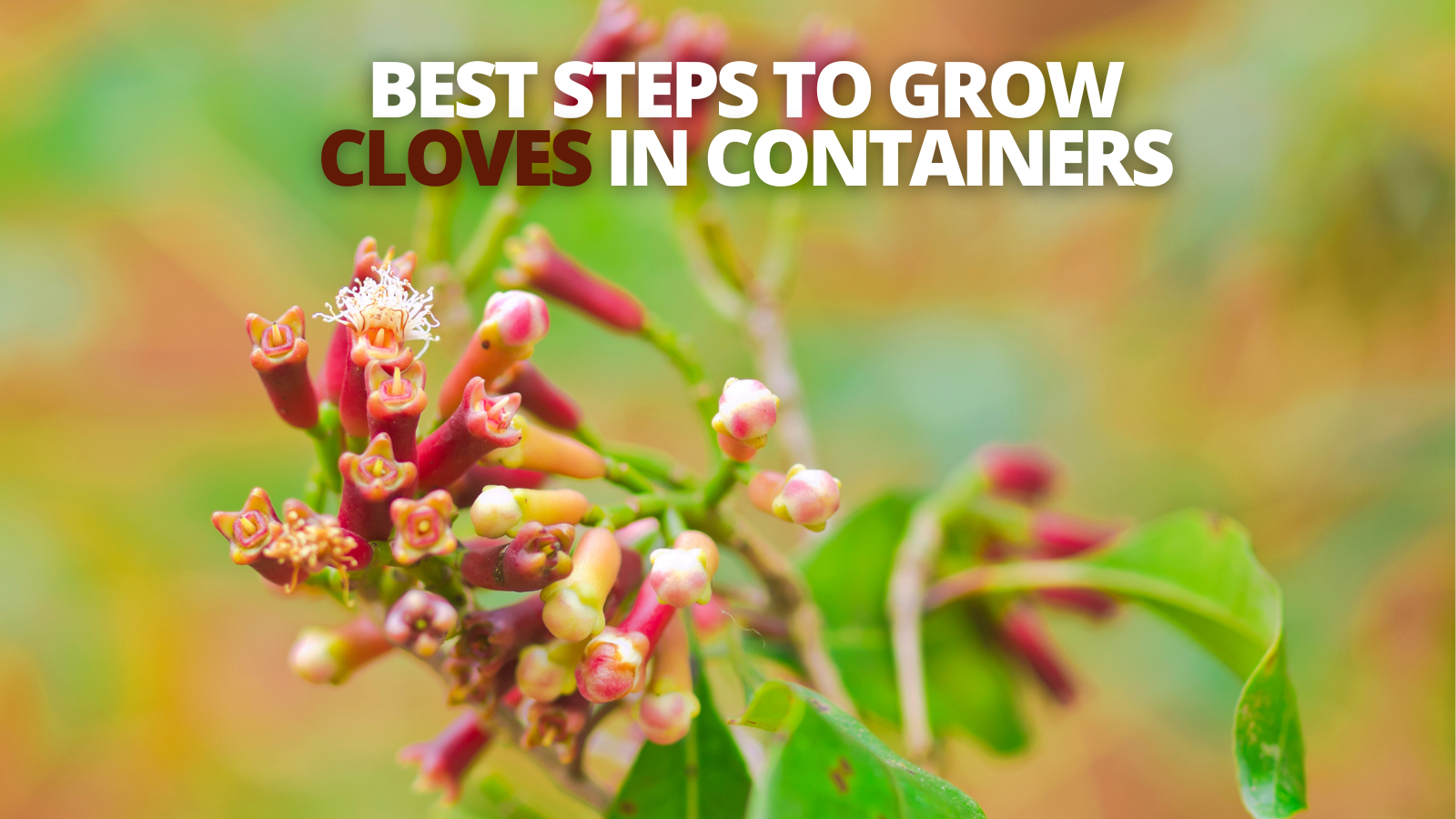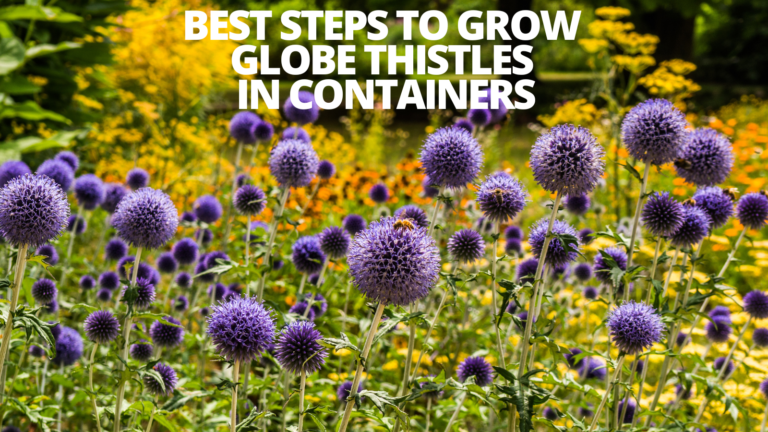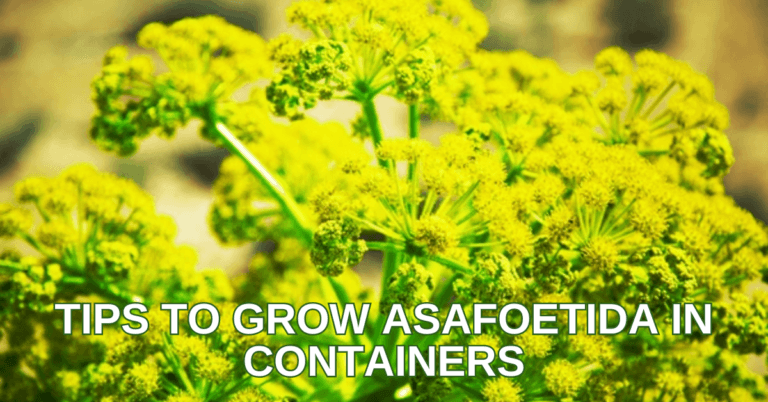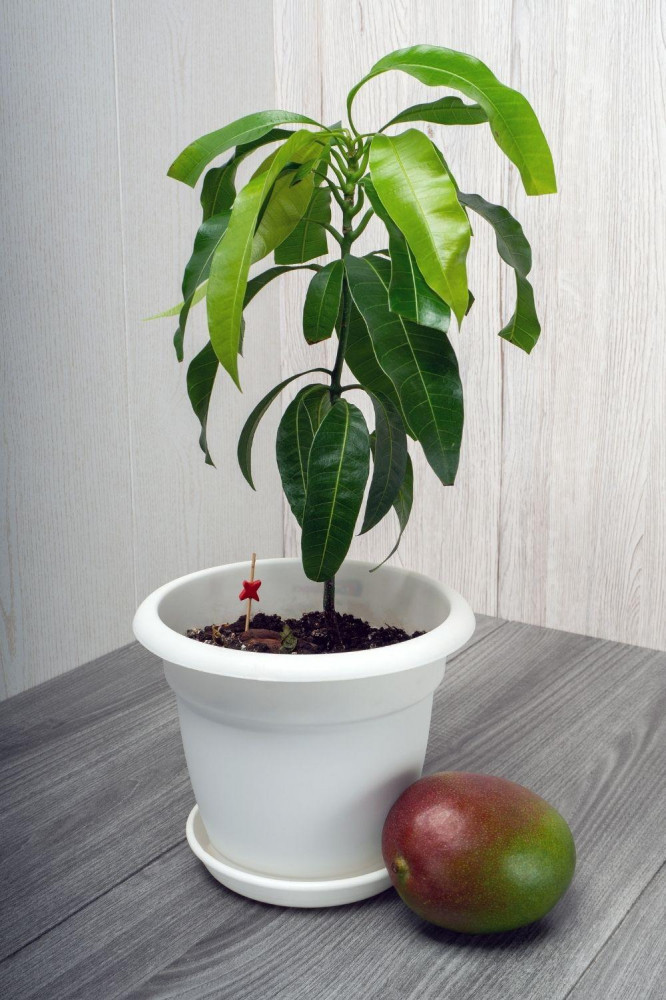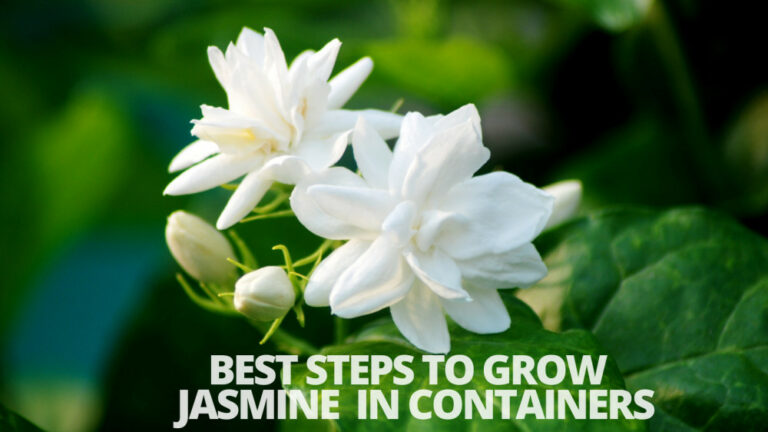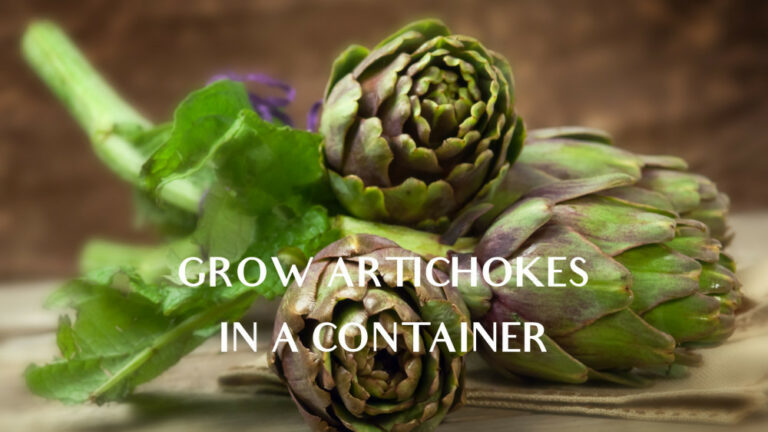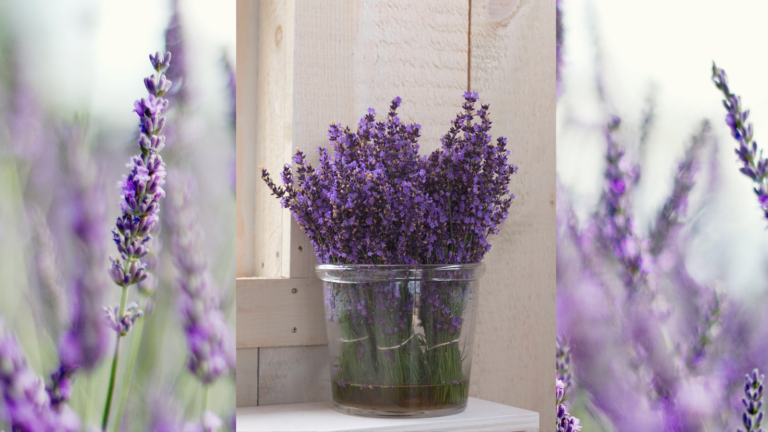Best Steps To Grow Cloves In Containers
Best Steps To Grow Cloves In Containers
The clove tree (Syzygium aromaticum), which has a small, reddish-brown flower bud, is a slow-growing but tenacious tree that can easily live to be 100 years old and beyond.
Its most distinctive features are the smooth, green or grayish-yellow, aromatic foliage and smooth trunk of the clove tree.
The tree's dried, unopened flower buds make the flavorful clove spice used in various dishes, beverages, and desserts.
The clove tree is indigenous to the Spice Islands and the Moluccas, and its name is thought to derive from either the Latin word “clavus” or the French word “cloud.”
Clove trees are grown in tropical regions like those found in India, Jamaica, the West Indies, Brazil, Sumatra, and others today.
The clove tree has long leaves and white flowers and can reach heights of 15 to 30 feet. The blog will show you how to grow cloves in containers.
History & Origin Cloves
Cloves were traditionally held in the mouth during audiences with the emperor and brought by envoys from Java to the Han-dynasty court of China as early as 200 BCE.
Cloves were employed to flavour, preserve, and garnish food in Europe during the late Middle Ages.
To create scarcity and maintain high prices, the Dutch eradicated cloves on all islands except Amboina and Ternate in the early 17th century.
Clove farming was primarily limited to Indonesia. Cloves were smuggled by the French from the East Indies to the New World and islands in the Indian Ocean in the latter part of the 18th century, ending the Dutch monopoly.
Indonesia was the world's top clove grower in the early twenty-first century, followed by Madagascar, Tanzania, and Sri Lanka.
The clove tree is an evergreen that reaches a height of around 8 to 12 meters (25 to 40 ft). Small, straightforward, and opposite, its leaves include glands.
Typically, seeds are sown in shaded regions, and the trees are grown from those seeds. Around the fifth year, a tree starts to flower, and it can produce up to 34 kg (75 pounds) of dried buds per year.
The buds are manually selected in late summer and again in the winter, after which they are sun-dried. A typical clove is between 13 and 19 mm long (0.5 to 0.75 inches).
A significant portion of the essential oil—14 to 20 percent—found in the buds is aromatic eugenol.
Due to Eugenol, which is extracted from cloves through distillation to produce oil of cloves, cloves have a potent aroma.
This oil serves as a local anesthetic for toothaches and a preparation for viewing microscopic slides. Eugenol is used in vanillin, mouthwash, perfumes, and germicides and as a sweetener or intensifier.
While cloves are used as a culinary spice to flavour a wide range of foods, their essential oil, also known as clove oil or oil of cloves, is also utilized in perfumes and flavourings for things like medications and synthetic vanilla.
In Chinese and Japanese cultures, cloves are a vital component of incense and are frequently used to scent the air. They are additionally employed medically, acting as a natural analgesic and antimicrobial.
Mexican cuisine has long employed cloves, and it usually pairs them with cumin, Canela (cinnamon), and dishes from North and South India (Dorenburg and Page 2003). It is primarily ground with other spices and used in practically every sauce or side dish in North Indian cuisine.
Together with green cardamoms, they play a crucial role in tea. The rice in the south Indian dish of biryani, which is similar to pilaf but contains the flavour of regional spices, is typically added whole to enhance its appearance and taste.
Health Benefits Of Cloves
The Syzygium Aromaticum tree produces cloves in the form of dried flower buds. Cloves have long been utilized not just as a spice but also as a treatment for various illnesses.
It was formerly used as an aphrodisiac to treat stomach problems, treat bad breath, and prevent tooth decay.
1. High In Antioxidants
Cloves are a good source of antioxidants and several vital vitamins and minerals. Compounds called antioxidants lessen oxidative stress, which can help develop chronic diseases. Eugenol, a natural antioxidant, is a component of cloves.
A test-tube study discovered that Eugenol prevented free radical-induced oxidative damage five times better than vitamin E, another potent antioxidant.
Other foods high in antioxidants, including cloves in your diet, can help enhance your general health.
2. Protects Against Cancer
According to certain studies, clove chemicals may offer some cancer protection. Clove extract was found in a test-tube study to promote the death of cancer cells and aid in halting tumour growth.
A second test-tube study with similar results discovered that clove oil in high quantities killed 80% of esophageal cancer cells. Additionally, Eugenol included in cloves was demonstrated to possess anticancer effects.
Eugenol was found in test-tube research to promote cell death in cervical cancer cells. More research is required to determine the potential effects of lower dosages on individuals.
Clove oil overdose can harm the liver, especially in children, because Eugenol is poisonous in large doses. It will take more investigation to determine how lower levels.
3. Can Kill Bacteria
According to research, cloves contain antibacterial qualities, inhibiting the development of pathogens like bacteria.
In a test-tube experiment, it was discovered that clove essential oil killed three common types of bacteria, including the form of E. coli that causes food poisoning. The antimicrobial qualities of cloves may aid in advancing oral health.
Clove chemicals were discovered in one test-tube investigation to stop the growth of two bacteria that cause gum disease.
They demonstrated improvements in gum health and the amount of plaque and germs after using the herbal mouthwash for 21 days.
They revealed improvements in gum health, plaque levels, and oral bacteria after using the herbal mouthwash for 21 days.
The antibacterial properties of cloves may help your oral health when used in conjunction with routine brushing and good oral hygiene.
4. Improves Liver Health
According to studies, the nutritional components in cloves may aid in supporting liver function. The chemical Eugenol might be particularly advantageous for the liver.
One experiment on animals fed combinations containing clove oil or Eugenol to rats suffering from fatty liver disease. Both mixes lowered oxidative stress, inflammatory response and enhanced liver function.
According to a different animal study, cloves' Eugenol can help alleviate the symptoms of liver cirrhosis or liver scarring.
Sadly, very little research has been done on how cloves and Eugenol affect people's liver functions.
Nevertheless, one tiny study discovered that taking eugenol supplements for a week reduced levels of glutathione-S-transferases (GSTs), a family of enzymes involved in detoxification, frequently a marker of liver illness.
Additionally, cloves are rich in antioxidants, which may help prevent liver damage by reducing oxidative stress.
However, Eugenol is poisonous in large doses. 5–10 mL of clove oil caused significant liver damage in one case study of a 2-year-old boy.
5. Controls Blood Sugar
Cloves include chemicals that, according to research, may help regulate blood sugar. Clove extract is used to treat diabetic mice with increased blood sugar in an animal investigation.
Another experiment on test tubes and animals investigated the effects of clove extract and nigericin, a substance present in cloves, on human muscle cells and diabetic mice.
Cloves and nigericin help to boost blood sugar uptake into cells, increase insulin secretion, and improve the activity of cells that produce insulin.
The hormone insulin is in charge of delivering sugar from your blood to your cells. Insulin must operate properly to keep blood sugar levels stable. Cloves could assist in regulating your blood sugar when combined with a balanced diet.
Grow Cloves In Containers
The well-known spice with a smokey flavour that goes so well with ham and fall-themed pastries comes from clove trees in the tropics.
It's hard not to desire to have one of your own, yet most gardeners find it impossible to cultivate them outdoors due to their great sensitivity to cold.
This raises a crucial issue: Can you grow cloves in containers? Read on to learn more about how to grow cloves in containers.
Container Requirements
Containers should have a suitable drainage system and a minimum diameter of 18 inches. Immediately after filling the pot or container about two-thirds full with damp (but not soggy) soil, seeds can be put on top.
Soil To Grow Cloves In Containers
Rich, loamy soil with much organic matter and good drainage is better. Clove trees can thrive from full sun to partial shade.
Clove plants are planted for commercial purposes in areas no more than 10 degrees from the equator to provide shade for mango and jacaranda trees.
The perfect environment for clove flowers is a cooler climate with shade and regular rainfall.
Grow Cloves From Seeds
Typically, seeds or cuttings are used to grow cloves. Fruits can ripen on trees and fall to the ground naturally, where you can harvest their seeds.
These seeds can be steeped in water overnight or sown right away. Utilize the sources you just gathered.
Because they won't germinate, the dried seeds are not viable enough. No more dirt is needed; you should immediately plant the seeds you bought.
It can also sprout if you place it straight over the ground. After planting, cover the seed tray or pot with a plastic sheet to improve and retain moisture in the soil.
It takes roughly six weeks for seeds to germinate. The seedling develops slowly and with great care.
Some gardeners only dry the plant once every day. Before transplanting, some gardeners keep the plant dry daily to preserve the fragile root ball.
Planting
The cultivation of clove trees from seed is common. The best soil for planting cloves is fertile, well-drained, and receives frequent feedings and watering.
Cloves should also be planted in the same soil as orchids. When planting your seedlings, place them where they will receive shade from larger plants during the first few years of their young, vulnerable life.
Before planting, moisten the soil and buy clove seeds from a dependable supplier. Ensure the seeds you think pollinate before planting them.
Don't just scatter a few buds from the bottle on your spice rack. Where cloves are growing, keep the soil wet but not drenched.
Directly sprinkle clove seeds onto the ground. The seeds can begin setting roots and acclimating to new environments without being buried under the dirt.
After a short period, the clove tree seedlings begin to sprout. When your clove seedlings are one inch tall, transplant them into a bigger pot.
Watering Requirements
These plants require constant watering. Some gardeners choose drip irrigation to achieve the most outstanding results, especially in the summer when the plants need more watering.
Just be cautious to prevent the soil from being soaked or overly wet, as these situations can result in root rot.
The clove tree will demand the most frequent watering in its first three to four years of development.
Temperature & Humidity
Pick a bright and humid indoor space in a colder region. The ability to sustain hot, humid conditions is required to cultivate your clove tree indoors. Maintain a humidity level of at least 60-70% and a temperature of 70 to 85°F (21 to 29°C).
A clove tree thrives best indoors in a greenhouse where it may always be hot and humid. The clove plant prefers moderately lower temperatures and lots of rain, which will aid in the growth of its blossoms and increase productivity.
But for them to thrive, the climate must be either humid sub-tropical or tropical, with a constant temperature above 50°F.
Sunlight Requirements
The seedlings should be watered daily and kept out of direct sunshine. For your seedling, choose a somewhat shaded spot that will provide it with 3 to 6 hours of sunlight per day.
Keep the soil moist but not soggy. A seed's germination period could be as long as six weeks. If the earth is still damp after 24 hours, reduce your watering plan to every other day.
Fertilizer
The optimum growth and yield from cloves come from frequent fertilizing. From May through June, you can use organic manure. In early October, shallow trenches can be excavated around the plant and used for farming.
Propagating
Seeds are the most typical means of propagation for clove trees. Clove trees can also be disseminated through cuttings.
It is best to try to reproduce something in the middle of the summer and sown the seeds immediately.
Fruits left to ripen on the tree will fall naturally once they are ready, and their seeds can either be put directly into the ground or soaked in water overnight. Since older seeds are less likely to germinate, it is best to plant freshly collected seeds.
Pests & Diseases Of Cloves
Special insects pose no threat to clove trees. These trees are prone to specific illnesses when growing under unfavourable conditions.
Such issues as sprouted wilt, root rot, leaf spot, scale, and mealybugs could occasionally appear with these plants.
Harvesting Cloves
After planting, the clove tree begins producing in around 7 to 10 years, and its plants reach their peak potential after 15 to 20 years.
High-altitude regions grow crops from December through October, and the plains from December through February.
Harvesting the produce from the buds takes roughly 4 to 6 months. Its length at this stage is less than 2 centimetres. It is best to choose clove buds when they turn a light shade of pink from green.
This time, caution is required because meticulous hand-selection of mature buds could degrade the product's quality. The tree is relatively tall, so you can use the ladder when picking buds.
Using a stick to knock down or tilt branches is inappropriate because doing so will also harm the tree's ability to grow in the future.
Care Of Cloves
Clove trees' requirement for water makes cultivating them in containers challenging. The fact that clove trees are native to the rainforest means they are accustomed to receiving a lot of rain—specifically, 50 to 70 inches (127 to 178 cm) yearly.
Clove trees grown in pots require even more watering to be healthy because they are known to dry out much more quickly than plants grown in the ground.
Nothing prevents you from growing a clove tree in a pot if you have a huge container and the means to water it frequently.
They can withstand temperatures as high as 40°F but are hardy in USDA zones 11 and 12. (4°C.). Bring your tree inside should it get colder.
Conclusion
Cloves have numerous potential health advantages, including regulating blood sugar and preventing bacterial development.
Like many healthy foods, they work best when incorporated into a nutritious and well-balanced diet. Consider adding a few cloves to your meals each week.
Many cuisines can readily incorporate ground cloves. They'll give chutneys, curries, or sweets a warm, recognizable flavour.
To produce a calming cup of clove tea, stew whole cloves in boiling water for 5 to 10 minutes.
The wonderful spice known as cloves may have numerous significant health advantages. So don't miss adding the useful herb to your home garden.
I trust you enjoyed this article on the Best Steps To Grow Cloves In Containers. Please stay tuned for more blog posts to come shortly. Take care!
JeannetteZ
>>>Please click here to read my all-inclusive article about Container Gardening<<<
>>>Are you interested in homegrown herbs and medicine? Please click here to find out more about it!<<<
Your Opinion Is Important To Me
Thoughts? Ideas? Questions? I would love to hear from you. Please leave me your questions, experience, and remarks about this article about the Best Steps To Grow Cloves In Containers in the comments section below. You can also reach me by email at Jeannette@Close-To-Nature.org.
Disclosure
This post may contain affiliate links. As an Amazon Associate and other affiliate programs, I earn from qualifying purchases at no extra cost to you. Read my full affiliate disclosure.
You might also enjoy these blog posts:
Best Steps To Grow Eucalyptus In Containers
Best Steps To Grow Acai In Containers
Best Steps To Grow Jasmine In Containers
Best Steps To Grow Valerian In Containers
Best Steps To Grow Magnolia In Containers

